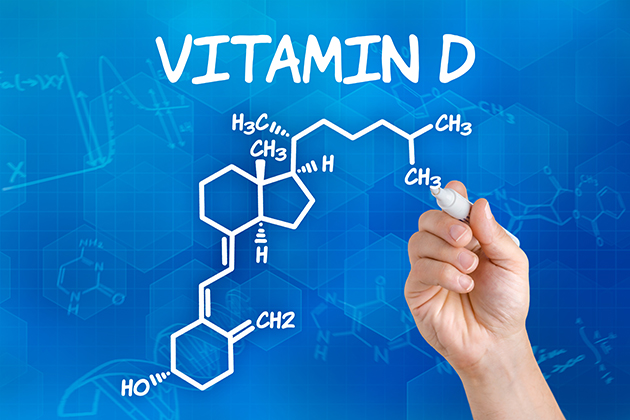
A recent study in the British medical journal Gut analyzes the association of higher vitamin D levels with a reduced risk of colon cancer. The research suggests a growing understanding of vitamin D’s effect on immunity and the body’s production of infection fighting T lymphocytes, or T cells, that can attack tumor cells.
Dr. Joel Levine, founding director of the Colon Cancer Prevention Program at UConn Health, has been studying vitamin D and offers his perspective. He was not involved in the British study.
Vitamin D deficiency has been associated with a number of health problems, including colon cancer. Why does this study offer reason for optimism?
For decades, observation and clinical correlation studies have reported that low levels of circulating 25 OH Vitamin D are associated with an increased risk of several cancers, most especially colon cancer. By “25 OH” we mean 25 hydroxy Vitamin D, which is a metabolite. The body changes the form of vitamin D by adding hydroxyl groups.
Vitamin D metabolism is complex and associated with different functions in different organs. Thus, the liver and kidney are central to calcium regulation, but within the colon, breast, and prostate cell, vitamin D (and its metabolites) is involved with gene regulation and other biologic pathways, including inflammation. The blood level of D is only a surrogate for what is happening with the cells, and may not reflect more important changes in its biology. Nonetheless, clinical observation of the 25 OH level has been consistent in showing its effect on colon cancer risk.
The new studies extend insight into additional mechanisms of action, including direct effects on cells involved with immunity and inflammation. This suggests that D is very broadly active. Indeed, 25 OH is not a vitamin but more accurately a pre-hormone (a substance converted in other tissues to active forms) in its actions in the body.
What do we know about the role vitamin D may have in fighting tumors/slowing their development?
There is exciting work underway that suggests that vitamin D has direct effects on T cells and other cells in the tumor microenvironment. T cells are a subclass of lymphocytes, which make up our white blood cells. Ongoing work by Dr. James Fleet at Purdue may provide information as to how vitamin D can help stop cancer cells from developing.
What do we still need to learn before we can declare vitamin D to be a cancer-preventing agent?
It is clear that low levels increase risk. But what is so exciting is that new studies may (only may) suggest that tumor immunity is influenced by taking adequate or increased amounts of vitamin D. But this does not mean people should begin to take thousands of units on their own. Very high levels of D can alter calcium metabolism and calcium loss from the body.
What has your own research, observation, and experience at UConn Health’s Colon Cancer Prevention Program revealed about vitamin D?
We have looked at large numbers of people having their vitamin D level measured in the blood at the time of a colonoscopy. Our results showed low levels associated with increased risk for advanced adenoma (a group of high risk polyps). We presented our findings at the national meetings in 2012 and won the Presidential Award. The paper is just being submitted [for publication].
What advantages/disadvantages are there between vitamin D from the sun, from food, and from supplements?
Living in the North (above Maryland) or having pigmented skin result in less synthesis of D3, as the UVB rays are low or blocked. It is hard to use diet alone to supplement D, but some can if they enjoy the foods [that are rich in the vitamin.] (http://www.healthaliciousness.com/articles/high-vitamin-D-foods.php). Most take over-the-counter vitamin D3 pills, which are cheap and small.
Follow UConn Health on Facebook, Twitter and YouTube.



